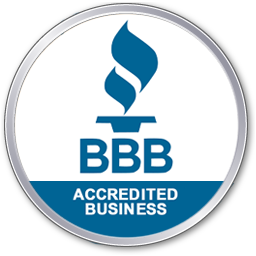Executive Summary
- If a property owner does not properly maintain, decommission, or remove their underground storage tank (UST), it can leak or spill harmful chemicals, such as petroleum hydrocarbons and heavy metals, into the surrounding soil.
- Pollutants from oil tank leaks can migrate to groundwater sources, tainting people’s drinking water and increasing their risk of developing bodily irritations and dangerous diseases like cancer in extreme situations.
- Depending on the type of pollutant, the leaked contaminant can pose various environmental threats, including water and air pollution, fire hazards, and negative impacts on biodiversity, such as obstructed plant growth.
- If you notice discolored dirt, unpleasant odors, or a lack of vegetation, a UST may be contaminating your soil. Professional-led soil sampling is an excellent way to identify contamination levels and sources.
Understanding the Environmental Impact of Contaminated Soil from Storage Tanks
There are millions of gallons of hazardous substances like petroleum products stored in underground storage tanks (USTs) throughout the United States. Over time, USTs become more vulnerable to leaks and spills if they are not correctly maintained, decommissioned, or removed from the property. When left unchecked, oil tank leaks can lead to soil contamination, posing numerous environmental hazards.
Contaminated soil from oil tanks can feature petroleum products, heavy metals, and VOCs that pollute water and air, potentially tainting drinking water sources and causing respiratory issues for the property’s inhabitants. Depending on the type of pollutant, the leak or spill may negatively affect biodiversity, stunt plant growth, and impact wildlife by altering the microorganisms in the soil. Moreover, some contaminants are flammable, meaning they can increase the risk of fires or explosions.
Understanding underground oil tanks can help you promptly address contamination to protect the environment and public health. Schedule an environmental site assessment or soil test with a qualified team of environmental professionals to locate and address contamination sources.
How Does Soil Contamination in Storage Tanks Work?
USTs containing oil or chemicals can contaminate soil through leaks, spills, or poor maintenance. Oil tank spills can happen if construction occurs on your property or the tank is improperly removed. However, corrosion or the natural shifting of land can also cause leaks, even if the tank is undisturbed from the surface.
Some materials used to make UST are more prone to degradation than others, making them more likely to contribute to soil contamination. For example, most USTs made before the mid-1980s were constructed out of bare steel, which is known to erode over time, especially when subjected to moisture or soil acidity.
Common Contaminants
USTs have been used to house various contaminants over the years. Some examples of common releases from USTs are:
- Petroleum hydrocarbons – This pollutant is commonly found in fuels like diesel, gasoline, and motor oil. It can harm soil microorganisms, block plant nutrient availability, and cause poor vegetation growth.
- Heavy metals – Elements like arsenic, cadmium, and lead can leach into soil from corroding USTs, presenting several health risks, ranging from neurological damage to cancer in severe situations.
- Volatile organic compounds (VOCs) – These compounds can easily vaporize and cause health issues like nausea, headaches, and organ damage when they are breathed in. They do not dissolve well in water, meaning they can lead to long-term groundwater contamination.
If a qualified professional does not inspect and maintain or remove your UST altogether, the abovementioned contaminants can penetrate your soil and cause harm to inhabitants and the surrounding environment.
Environmental Consequences of Soil Contamination
Soil contamination can negatively affect the environment in different ways, depending on the type of soil contaminant and what is near the polluted soil, such as water or plants. If left untreated, a malfunctioning UST can contaminate the soil and present the following consequences.
Groundwater Pollution
Pollutants in the soil can reach groundwater through several pathways and taint drinking water sources. Some examples of ways oil tank leaks can travel to contaminate groundwater are:
- Permeable soils – When soils are porous, pollutants can easily seep into the groundwater.
- Fractured rock – Fissures in rocks can allow contaminants to travel through and infiltrate groundwater quickly.
- Macropores – Root systems, animal burrows, and abandoned wells can serve as pathways that direct contaminants toward the groundwater system.
- Pumping wells – Contaminants from neighboring areas, such as rivers, streams, or even adjacent aquifers, can enter well water.
Groundwater contamination can lead to poor drinking water quality, increasing your risk for health problems. For example, drinking water containing petroleum hydrocarbons can cause irritations, stomach pain, nausea, vomiting, and diarrhea.
Ecosystem Impacts
Soil contamination from USTs can harm natural habitats, hindering wildlife and plant life. Soil contaminants from USTs can threaten ecosystems in the following ways.
Water Pollution
Contaminated groundwater can hinder aquatic ecosystems by degrading water quality and introducing toxins into the food chain. For instance, high nitrate levels from underground septic tanks can cause algal blooms, reducing oxygen and harming aquatic life. Nevertheless, keeping up with maintenance and scheduling professional-led septic tank services can help avoid this.
In addition to oil tank leaks, surface-level spills from improperly removed USTs can create runoff that seeps into streams, rivers, lakes, or other bodies of water. Therefore, it is crucial only to have highly qualified environmental specialists perform your tank decommissioning.
Air Pollution
Due to soil permeability, many pollutants from USTs, such as gasoline and solvents, can send toxic fumes or VOCs into the air, contributing to air pollution. Breathing in polluted air can cause many health problems for humans and animals. Some examples of health problems humans may experience when breathing in VOCs from USTs are:
- Respiratory issues
- Headaches
- Dizziness
In addition to the abovementioned health concerns, extreme conditions or extended exposure to certain air pollutants can cause diseases like cancer in humans.
Fire Hazards
Many substances stored in USTs, including fuels like gasoline, are highly flammable. UST leaks or spills can disperse flammable substances throughout your property, posing a significant fire or explosion hazard. Soil and vegetation soaked in the combustible material can help fire spread, threatening wildlife and plant life within a large radius.
Plus, the smoke and residue left behind by fires can contain harmful chemicals that worsen air pollution. The soot and residual contaminants from a fire can also enter water systems and pollute the drinking water of humans and animals.
Impact on Biodiversity
Wildlife can experience an increased risk of poisoning, organ damage, or death from exposure to pollutants from USTs like petroleum products. Contaminated soil can also degrade habitats by deteriorating ground quality and vegetation. Contaminated soil can hinder biodiversity by contributing to a decline in plant and animal populations.
Even if plants and animals survive exposure to soil contaminants, they may still absorb toxins and experience poor health or stunted growth. Over time, this can affect the heterogeneity of different species in the area.
Properly decommissioning or removing storage tanks is an excellent way to avoid the environmental consequences that can arise from unchecked soil contamination.
Professional Underground Storage Tank Services
Alpha Environmental supports you with your underground storage tank, providing tank sweeps, tank decommisioning, UST removal, and more.
How to Tell if an Underground Storage Tank Is Leaking
Early detection and prompt action are critical to minimize the risk of an underground storage tank leak on a property. Proactive measures, such as regular inspections and as-needed maintenance, make it easier to prevent leaks and avoid the associated environmental, legal, and financial repercussions.
You should also keep an eye out for warnings that indicate you may have a UST leak. Some common signs of an oil tank leak are:
- Unusual, chemical-like odors throughout your land
- Unexpected drops in fuel readings may signal a leak
- Discolored soil
- Poor-tasting well water
- Oil slicks forming on the surface
- Lack of vegetation
Although the above mentioned indicators may suggest a UST leak, the best way to check is by scheduling a soil test with a qualified environmental professional.
The Role of Soil Sampling in Addressing Contamination
Soil testing is essential for identifying contamination levels and sources on a property. It usually involves extracting soil from various locations and depths using specialized tools, such as augers and probes. Then, these samples are typically taken off-site to a certified laboratory to detect hazardous contaminants, such as chemicals from underground storage tanks. The results from the analysis illustrate the extent of contamination and help inform necessary remediation steps.
Experienced ecological remediation companies like Alpha Environmental can offer thorough and accurate soil sampling that promotes transparency and makes it easier to keep your property and its surrounding environment safe.
How Alpha Environmental Services Can Help
Soil contamination from an oil tank can endanger not only the property’s inhabitants but the surrounding environment. Underground storage tanks can leak or spill various soil contaminants, ranging from petroleum hydrocarbons to VOCs. Oil tank leaks can negatively affect the water and air quality, pose fire hazards, and obstruct biodiversity. You should be proactive by looking for signs of contaminated soil, such as foul odors or discolored dirt, and scheduling comprehensive soil sampling services with a trusted specialist.
Alpha Environmental is a top-tier environmental remediation company that services residents of Portland, Oregon, and its neighboring locations. We take pleasure in assisting our neighbors with underground storage tank services, controlling soil contamination, and safeguarding ecosystems. We can perform residential tank sweeps to assess the condition of your UST and help you lower the risk of environmental hazards. Our knowledgeable environmental staff is committed to offering excellent service that complies with local laws.
Contact Alpha Environmental today to schedule an environmental site assessment, soil sampling, or other important ecological services.




